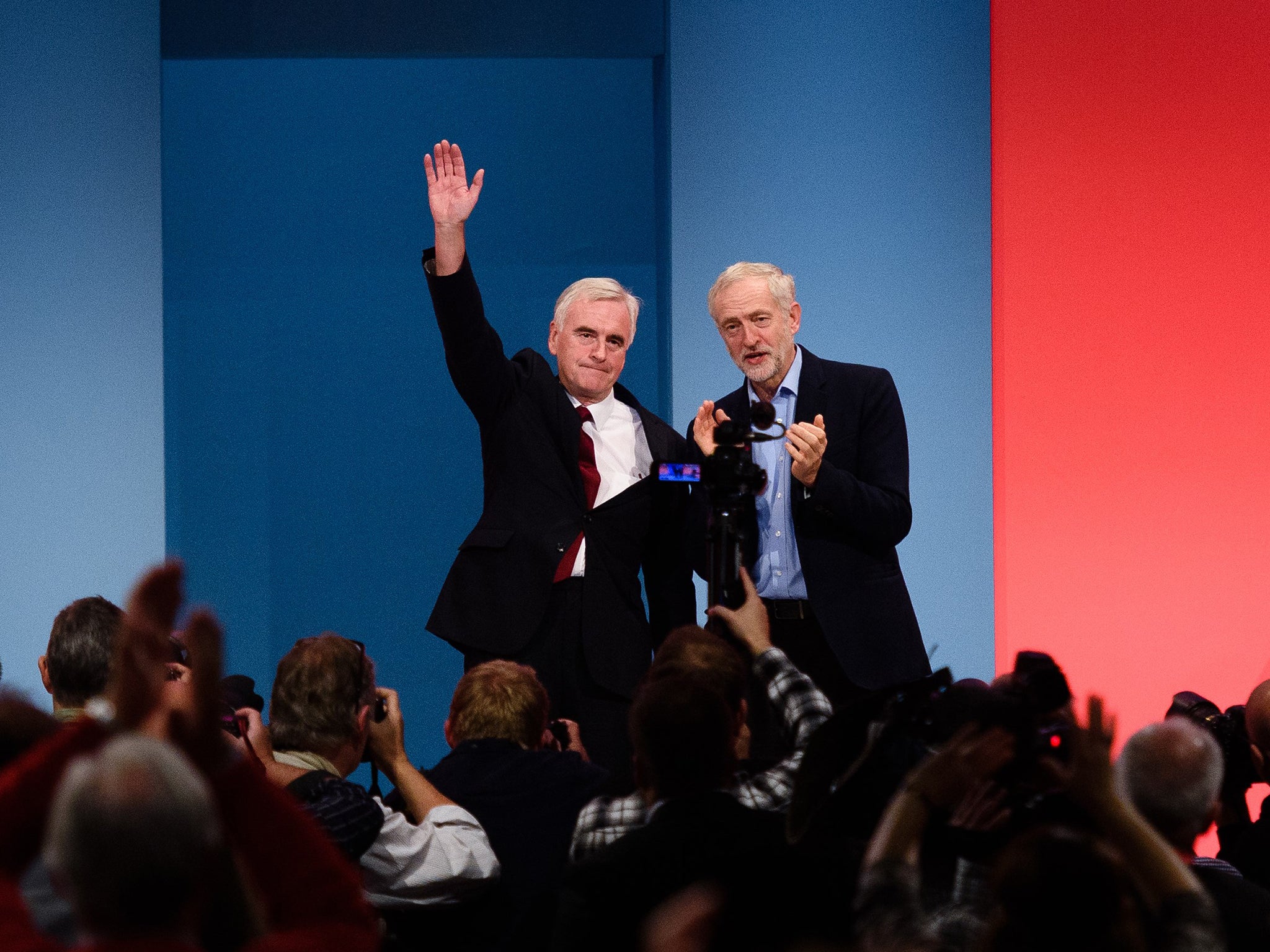Jeremy Corbyn warned much of his agenda will not be achievable if Britain stays in the EU
Eurosceptic MPs say competition law would prevent Mr Cobyn's attempts to renationalise services

Your support helps us to tell the story
From reproductive rights to climate change to Big Tech, The Independent is on the ground when the story is developing. Whether it's investigating the financials of Elon Musk's pro-Trump PAC or producing our latest documentary, 'The A Word', which shines a light on the American women fighting for reproductive rights, we know how important it is to parse out the facts from the messaging.
At such a critical moment in US history, we need reporters on the ground. Your donation allows us to keep sending journalists to speak to both sides of the story.
The Independent is trusted by Americans across the entire political spectrum. And unlike many other quality news outlets, we choose not to lock Americans out of our reporting and analysis with paywalls. We believe quality journalism should be available to everyone, paid for by those who can afford it.
Your support makes all the difference.Jeremy Corbyn has been warned by some of his own MPs that much of his agenda will not be achievable if Britain remains in the European Union.
Eurosceptic Labour MPs said European competition law would prevent his attempts to renationalise the railways, energy companies and Royal Mail, while also blocking the creation of a national investment bank to rebuild Britain’s ailing manufacturing industry – one of Mr Corbyn’s central economic policies.
Graham Stringer, speaking alongside his fellow Eurosceptic Labour MPs Kate Hoey and Kelvin Hopkins at a fringe event at the party’s annual conference in Brighton, said: “Most of Jeremy Corbyn’s agenda would be much more difficult in the EU; if we want to take into public ownership the railways, the post office, most of those issues – one can argue about the rights and wrongs of them – would be more difficult within the regulations of the EU.”
He insisted the UK “certainly survive and do a great deal better” outside the EU, claiming many free trade treaties have failed at the EU level because of the “arthritic structures” of EU bureaucracy.
Ms Hoey, who is leading Labour for Britain – a group that is pushing for major reforms of Britain’s membership of the EU and will support an Out vote if their demands are not met, predicted Mr Corbyn would express the same views if he was speaking privately.
She said: “The one area where the Labour party doesn’t want to debate, even under the new leadership, is the EU and I personally don’t think that if Jeremy Corbyn was standing here and there was no one around him apart from one or two people he really trusted, I personally don’t think his views would be very different.”

Mr Hopkins also warned that the big pitch made by shadow chancellor John McDonnell in his keynote economics speech on Monday – promising to set up a national investment bank to provide state aid to boost manufacturing – would be incompatible with EU regulations.
“We want to rebuild manufacturing - our manufacturing sector is now half the size of Germany’s as a proportion of GDP and yet there are now rules in the EU which prevents us using state aids to intervene in industries,” Mr Hopkins said.
“Jeremy [Corbyn] has been talking and John [McDonnell] was talking today about having a state investment bank to rebuild manufacturing – how much will that actually be allowed under the EU? Will we be allowed to use state aid?”
Trade unions voted at the TUC conference two weeks ago that they would back an Out vote in the EU referendum if David Cameron secures an opt out of workers’ rights enshrined in the Social Chapter.
Some unions are also opposed to EU membership over its competition laws – outlined in article 106 of the Treaty of Rome – that prohibits public monopolies from having exclusive rights where it violates EU competition rules.
Ian Hudson from the Bakers’ Union, who also appeared on the panel, said one of the biggest problems with the EU was the “inability to take back control of ownership of the means of production.”
Join our commenting forum
Join thought-provoking conversations, follow other Independent readers and see their replies
Comments